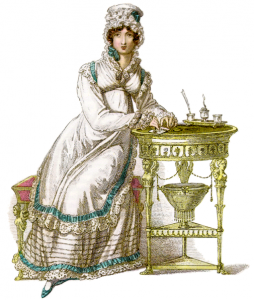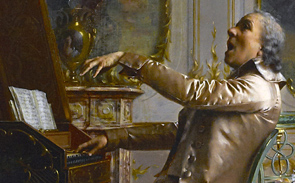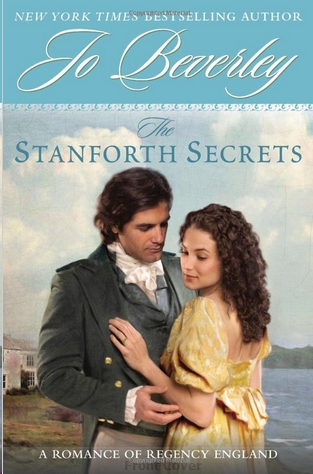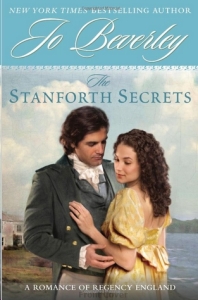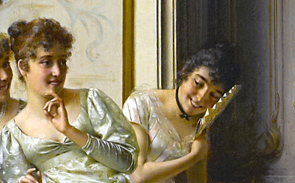 This is from 2013: Catch this great serial story. To kick off our second year of celebrating Inspirational Regency fiction, we are presenting the serial story, A Suitable Match. At the end of the month we’ll be giving away a fabulous prize package filled with items tied to the story. For a chance to win, find the item mentioned in this section and leave a note in the comments. Details and a list of prizes can be found here.
This is from 2013: Catch this great serial story. To kick off our second year of celebrating Inspirational Regency fiction, we are presenting the serial story, A Suitable Match. At the end of the month we’ll be giving away a fabulous prize package filled with items tied to the story. For a chance to win, find the item mentioned in this section and leave a note in the comments. Details and a list of prizes can be found here.
Missed an earlier section? Read it here: 1
On the road between Somerset and London
April 1818
Dropping his clenched fists to his breeches, Miles, Earl of Twiford allowed a portion of his anger to subside. The earl stood there half-blinking at the sea nymph emerging from the overturned carriage, her wild ringlets falling about her sleek neck and shoulders.
Twiford shook his head. “Miss Blackstone? Yes, it is you.” He could feel a smile tugging at his lips. More of his fury leeched away. To think he was in high-dudgeon over the near harm to his favourite Arabian team that he’d momentarily overlooked the fact that there might be passengers within the coach requiring assistance.
Yet, as he gazed upon her again something pricked his heart. Wasn’t it ironic to bemoan the loss of a perfectly matched pair: horses, people. He wiped the dust from his chocolate-kid gloves. “Are you injured?”
Her pert mouth clamped shut as if trying to contain one of her tart rebukes. She waved an overly perfumed hand his way.
Pushing aside his manservant, Twiford lifted the creature from the carriage, her slim waist fitting nicely within his grasp. He set her to her feet but not without another blast of violet scent taming the remaining heat of his nostrils.
“Knighting!” She pointed back to the carriage. “You must get my maid out of there.”
With a nod to Drake, his servant of ten years, Twiford set her request in motion. “Where are you headed in such haste? Your noddy driver recklessly cut in front of my party. I suppose he deserved to get the worst of it, but he could’ve gotten you killed.”
“My cou… my driver? Where is he?” She spun away. The hem of her muslin skirts lapped deeper in the river mud. As she marched toward the front of her vehicle, her heart-shaped face drained of all colour. Her gaze descended upon the cresting waters. “Is he…?”
Twiford strode near and almost put his hand on her shoulder. What was it about her that made him vacillate from wanting to throttle Miss Blackstone to tracing the high arch of her neck?
She turned to him with chestnut eyes flashing. “What has been done to him?” She released a shaky breath, then leveled her shoulders. “As you remember, I am not weak or helpless. Spare no truth from me.”
Twiford shifted his stance. How well he did remember. She was a lady with a character more worthy than many of his ilk. “Your driver is in my last carriage. There’s a large, well- deserved bump on his skull, but he’ll live.”
The lady swiveled and headed to his vehicle.
Before he cut in front of her or even opened the vehicle for her, Miss Blackstone thrust open the dusty door. She gasped at the miserable sight, her bloody coachman lying prostrate on the leather seat.
This time Twiford grasped her shoulders to steady her. “He just needs to be cleaned up a bit. The injury looks far worse than what it is. How a man could nod asleep on such treacherous roads is beyond my comprehension.”
Jerking away, she leaned inside and mopped the driver’s brow with a crumpled handkerchief she’d tugged from her pocket.
“Miss Blackstone, he’ll be seen to at our next stop. The George and Pelican is very near. I prom–”
A thin woman pushed past and fell at Miss Blackstone’s feet. “I’ve got your jewels, ma’am. Nothing will be missing from this part of your inheritance. But how will we make your London appointments now? We can’t miss–”
“Knighting.” With a stern look, Miss Blackstone silenced her maid. “I’ll find a way. Blackstones always find away.”
Inheritance? The miss was heading to London? A bad feeling drummed at the pit of Twiford’s stomach. He cleared his throat. “Ladies, let me be of assistance. I am stopping the night at the George and Pelican.”
Miss Blackstone squinted at him as if she looked into a mirror, then fingered her sun-kissed tresses. “Oh, my.” Gripping bundles of her errant locks, she tamed the wild chignon. “Why are you being so helpful, my lord?”
“We can have your driver seen to at the inn to which I shall drive you,” he added.
With another quick jab of a heavy pearl pin, Miss Blackstone secured the last of her curls then stood tall. The misguided airs of a duchess cloaked about her, and the lass seemed to look through him.
“We have never been friends, my lord. Why start now?”
He toyed with the edges of his withered cravat. His sins toward her and her father mounted high. Maybe too high. Twiford swallowed his guilt and took a step toward her. Providence had a new claim to his heart. It was time to start acting upon His leading. “Miss Blackstone, it is my duty to escort you, since I’m a party to this accident, too. Perhaps the opulence of my barouche blinded your driver and caused him to lose control.”
She folded her arms. Her noble chin lifted as her countenance shifted to the maid gathering an errant garnet cloak. “Your wit is still with you, Lord Twiford.”
“Yes, as is my sense of duty.”
“Duty? Yes, you were always about duty, but I thought that was only in service to a friend.”
Perhaps frightened by Miss Blackstone’s searing tone, the Knighting woman slipped back toward the toppled vehicle with an armful of papers and muslin.
Well, he’d earned every accusatory note in the lady’s address, but this day would be different. A small token to salve the old wounds. “Madam, I must insist you allow me to escort you to the George and Pelican.”
“I suppose I do not wish to be benighted on the road. Get our things, Knighting.” Miss Blackstone marched back to her toppled gig and ran her hand along the broken ribs of the roofing. “Lord Twiford will see us to the next stop.”
“Yes, ma’am.” The maid headed to the brush scooping up unmentionables.
“My man will help. Drake, pack their things on the second carriage. Miss Knighting and Miss Blackstone will ride with me.”
“Yes, my lord.” Drake, his most loyal advocate, shook his head then followed the maid plucking possessions littering the road.
Alone with the feisty sea nymph, smelling of his favorite flower, Twiford extended his arm.
She pried away from the wreckage and put her fingers to his sleeve. Her hold was light as if it proved painful to touch him. “Escort us only to the nearest inn. I will not impose upon you any more than necessary.”
“Must you always be so willful? Can you not accept that years can change a person?”
“Forgive me.” She brushed at the specks of mud on her skirt. The scent of violets washed over him with each strike. “But I seem to remember a few choice lectures from you, my lord, about birthright, and station.”
“Well, fools know words, too.” He laid his palm atop hers. “Let me see you all the way to London. After witnessing how well your man drives, it will ease my mind to know you are safe and well in the city.”
***
This was too cruel. Cressida had hoped for a chance meeting with Lord Twiford in a fashionable drawing room at one of the Season’s soirées. As the tall, broad shouldered man handed her into his carriage, she resisted the urge to swat more mud from the skirt of her old, three-seasons-past gown. Where was a hole to hide in when one needed it?
“Miss Blackstone, are you well? You’ve a worried crease on your pretty forehead.” Lord Twiford plucked off his fine leather gloves as he reclined on the opposing bench.
“I am well.” An odd shiver coursed her spine. Twiford was as opposing and menacing as she remembered, a large raven-haired man with an assessing stare.
She licked her dry lips. “Please do not be overly concerned.” Her limbs ached. Her head pounded. Her pride surely was trampled on the floorboards. She slumped into the seat back.
Knighting leaned into her. “Such a fine carriage, Miss Blackstone. It will be a very comfortable ride.”
“Shh.” Cressida kept her voice low, but Twiford never missed anything. He was always in Chard’s confidence pointing out her flaws. She wrung her hands, then forced them to be stilled in her lap. Oh, why couldn’t he have happened upon her wearing one of Madame Touse’s new walking dresses or after Cressida’s change in circumstances had been circulated? Then maybe those wide sky-blue eyes wouldn’t be viewing her with such speculation.
She lowered her lashes, blurring Twiford’s image with the weave pattern in the Padua silk lining the walls. “My lord, thank you … for your assistance.” A yawn escaped of its own volition. “But I’m sure you’ll be glad to be rid of us.”
“On the contrary, it’s good to have company on these long treks from the country. No one usually wants to go set up the Grosvenor townhouse, just enjoy its offerings. Hopefully, my mother and sister will stay long enough to bring it around. They left ahead of me and are already at the townhouse.”
****
The carriage swayed to a stop. Cressida stretched her arms and gazed out at the well-lit inn. Pivoting to the smiling lord, she sat up straight.
Lord Twiford rolled his shoulders, then tugged on his felt top hat. His grin shone in the dim carriage light. He lifted his hand to her. “Come along. Once I’ve had an apothecary see to your coachman. I could expect you to have some charity and dine with me, along with your maid for chaperone, of course, my dear.”
* Section 2 was written by Vanessa Riley, www.christianregency.com *
Did you find the hidden item? Note it in the comments below for a chance to win.
Don’t forget that the readers will ultimately choose who truly loves Cressida, and whom she loves in return. Already have a favorite? Go vote for him! Want everyone else to vote for him too? Grab a voting badge from the Suitable Match Extras page.
What surprises do you think await Cressida at the inn? Read the next installment!
THE CONTEST AND POLL ARE NOW CLOSED. Feel free to continue to enjoy and share the story.
Originally posted 2015-11-22 17:45:39.
 Thanks to everyone for stopping by our release celebration for A Heart’s Rebellion by Ruth Axtell. We have winners! And answers! And more information about the next book we’re promoting during our Spring Release Extravaganza!
Thanks to everyone for stopping by our release celebration for A Heart’s Rebellion by Ruth Axtell. We have winners! And answers! And more information about the next book we’re promoting during our Spring Release Extravaganza!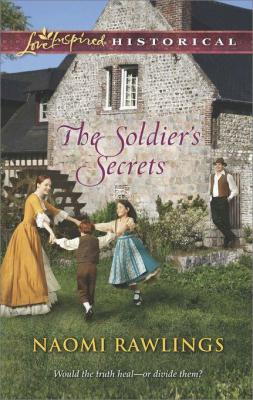


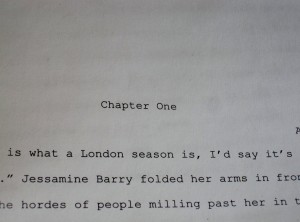

 This is from 2013: Catch this great serial story. To kick off our second year of celebrating Inspirational Regency fiction, we are presenting the serial story, A Suitable Match. At the end of the month we’ll be giving away a fabulous prize package filled with items tied to the story. For a chance to win, find the item mentioned in this section and leave a note in the comments.
This is from 2013: Catch this great serial story. To kick off our second year of celebrating Inspirational Regency fiction, we are presenting the serial story, A Suitable Match. At the end of the month we’ll be giving away a fabulous prize package filled with items tied to the story. For a chance to win, find the item mentioned in this section and leave a note in the comments.  Ann Guilfoyleis a wealthy and independent young woman in Regency England, with her life planned before her. She opens her drawing room to what she considers the creme de la creme of thinking people and she intends to marry the exact right man. Then financial tragedy strikes and she finds herself 200 miles from London trying to settle herself into country life, a fate worse than death for a woman who considers herself sophisticated and intellectual. She thinks she can only mock thegentleman farmer Mr. Highet and his “gargantuan” mother. In short, Ann is a snob who thinks this country gentleman beneath her, yet when a different tragedy strikes, this one of the heart, she accepts his offer of help and her attitudes and heart begin to change.
Ann Guilfoyleis a wealthy and independent young woman in Regency England, with her life planned before her. She opens her drawing room to what she considers the creme de la creme of thinking people and she intends to marry the exact right man. Then financial tragedy strikes and she finds herself 200 miles from London trying to settle herself into country life, a fate worse than death for a woman who considers herself sophisticated and intellectual. She thinks she can only mock thegentleman farmer Mr. Highet and his “gargantuan” mother. In short, Ann is a snob who thinks this country gentleman beneath her, yet when a different tragedy strikes, this one of the heart, she accepts his offer of help and her attitudes and heart begin to change.





